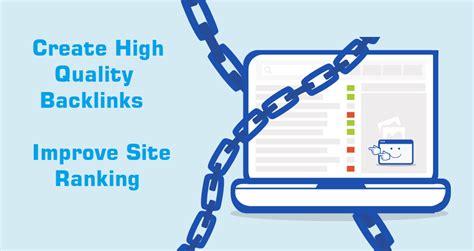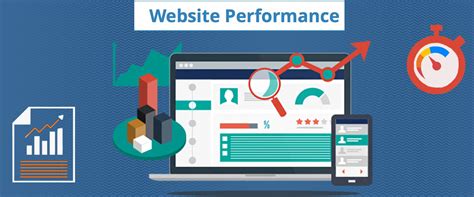When it comes to enhancing your online presence and attracting more organic traffic, there are several key techniques that can propel your website to new heights. By harnessing the power of search engine optimization (SEO) and implementing a few strategic maneuvers, you can significantly improve your website's visibility and increase its chances of ranking higher in search engine results pages. In this article, we will delve into five effective methods to boost your website's search engine ranking and achieve better online performance.
1. Optimize Your Content: Content is king, and it plays a crucial role in determining your website's relevance to search engines. By crafting high-quality, informative, and engaging content that is tailored to your target audience, you can increase your chances of ranking higher in search engine results. Utilize relevant keywords and phrases throughout your content, but ensure that they are used naturally and not stuffed unnaturally. Additionally, incorporating external and internal links can enhance your content's credibility and make it more search engine-friendly.
2. Enhance Site Speed: In today's fast-paced digital landscape, users expect instant results. Therefore, it is vital to optimize your website's loading speed to improve user experience and reduce bounce rates. Compressing images, minifying CSS and JavaScript files, as well as leveraging browser caching are some effective techniques that can accelerate your website's performance. Remember, faster loading times not only impress users but also attract search engine crawlers, resulting in improved search rankings.
3. Mobile-Friendly Design: With the increasing use of mobile devices, having a mobile-friendly website is no longer an option; it has become a necessity. Search engines recognize the importance of mobile experience and prioritize websites that are optimized for smaller screens. Ensure that your website is responsive and adapts seamlessly to various devices, providing a user-friendly experience. This not only boosts your search engine ranking but also increases your chances of attracting and retaining mobile users.
4. Secure Your Website: Website security is a critical factor that search engines take into consideration when ranking websites. Implement an SSL certificate and migrate to HTTPS protocol to ensure that your website is secure and trusted by both search engines and users. A secure website not only instills confidence in your visitors but also contributes to higher search rankings, as search engines prioritize secure sites to protect user data and privacy.
5. Leverage Social Media: In this era of social networking, integrating social media into your online marketing strategy can have a significant impact on your website's search engine ranking. Engaging with your audience on popular platforms such as Facebook, Twitter, and Instagram not only drives traffic to your website but also creates valuable backlinks, social signals, and brand authority. By consistently sharing valuable content and actively participating in social media communities, you can boost your online presence and position yourself as an authoritative voice in your industry.
Increase the Visibility of Your Website Using these 5 Proven Techniques

Enhancing the visibility of your website online is of utmost importance in today's competitive digital landscape. By implementing a strategic approach and adopting key techniques, you can significantly increase the exposure and reach of your website. In this section, we will explore five powerful strategies that have been proven to boost the visibility of websites effectively.
1. Optimize Your Website's Content
One way to enhance your website's visibility is by optimizing its content. By conducting thorough keyword research and incorporating relevant keywords into your website's copy, you can improve its chances of appearing higher in search engine results. Additionally, utilizing internal linking and ensuring proper meta tags are in place can further optimize your website's content for search engines.
2. Build High-Quality Backlinks
Another effective strategy to increase your website's visibility is by building high-quality backlinks. Backlinks are incoming links from other websites, and search engines consider them as a vote of confidence in your website's credibility. By acquiring backlinks from reputable and authoritative websites within your niche, you can improve your website's search engine ranking and visibility.
3. Enhance User Experience
A website that delivers a smooth and enjoyable user experience is more likely to rank higher in search engine results. By optimizing your website's loading speed, ensuring mobile responsiveness, and providing easy navigation, you can enhance the user experience and increase the visibility of your website. User-friendly websites are more likely to attract organic traffic and generate higher engagement metrics.
4. Engage in Social Media Marketing
Social media platforms offer an excellent opportunity to increase the visibility of your website. By creating and sharing valuable content on platforms such as Facebook, Twitter, and Instagram, you can attract a wider audience and drive more traffic to your website. Engaging with your audience, utilizing relevant hashtags, and sharing user-generated content can further amplify the visibility of your website through social media channels.
5. Regularly Analyze and Optimize
Continuously analyzing and optimizing your website's performance is crucial for maintaining and improving its visibility. By utilizing tools such as Google Analytics, you can gain valuable insights into your website's performance metrics and user behavior. These insights can help you identify areas for improvement and implement necessary changes to enhance your website's visibility effectively.
By implementing these five proven techniques, you can increase the visibility of your website and drive more organic traffic. Remember, enhancing visibility requires a strategic and consistent approach, so be sure to regularly monitor and adjust your efforts to stay ahead of the competition.
Optimize Your Website's Content for Keywords
In order to enhance your website's visibility on search engines, it is crucial to optimize your website's content for keywords. Keyword optimization plays a significant role in driving organic traffic to your website and improving its search engine ranking.
When optimizing your website's content for keywords, it is important to conduct thorough keyword research to identify the most relevant and valuable keywords for your specific niche. Choose keywords that are frequently searched by your target audience and align with the content and purpose of your website.
- Include your chosen keywords in the title tags of your web pages. The title tag is an HTML element that provides a brief description of your page's content and appears as the clickable headline in search engine results.
- Integrate your keywords naturally throughout the content of your web pages. Avoid keyword stuffing, as it may negatively impact your website's ranking. Aim for a balanced and informative use of keywords that enhances the readability and relevance of your content.
- Utilize your keywords in the headings and subheadings of your web pages. This helps search engines understand the structure and topic of your content.
- Optimize the meta description of your web pages by including your keywords in a concise and engaging manner. The meta description is a brief summary that appears below the title tag in search engine results, providing users with a preview of your page's content.
- Regularly update and refresh your website's content to maintain its relevance and align with evolving search trends. Continuously optimizing your content for keywords can contribute to improved search engine rankings over time.
By optimizing your website's content for keywords, you can increase its visibility and attract more organic traffic. However, remember that keyword optimization should be done in a natural and user-friendly manner, prioritizing the value and relevance of your content to your target audience.
Enhance Your Website's Ranking with High-Quality Backlinks

Boosting your website's visibility on search engines requires a well-rounded optimization strategy. One crucial aspect of this strategy is establishing authoritative and relevant backlinks to your website. Backlinks serve as a vote of confidence from other websites, indicating the value and credibility of your content.
Building high-quality backlinks plays a pivotal role in improving your website's search engine ranking. It involves acquiring links from reputable and trustworthy websites in your industry or niche. Such backlinks act as a validation of the quality and relevance of your content, establishing your website as a reliable source of information.
When it comes to building high-quality backlinks, focusing on quantity alone won't suffice. It's essential to prioritize the quality of the linking websites. Seek opportunities for collaboration with authoritative influencers, industry experts, and popular websites in your field. This collaborative approach ensures that your website gains valuable backlinks that significantly impact your SEO efforts.
Another effective strategy is to create and publish engaging and shareable content that naturally attracts backlinks. By offering valuable and informative content, you can position yourself as an industry thought leader, encouraging other websites to link back to your resources. This organic approach helps build backlinks over time by attracting attention and recognition within your niche.
In addition, actively monitoring and managing your existing backlinks is critical. Regularly assess the quality and relevancy of your backlinks, and take necessary steps to remove any low-quality or spammy links. This proactive approach ensures that your website maintains a healthy backlink profile, which positively influences your search engine ranking.
Remember, building high-quality backlinks is a continuous process that requires time and effort. By implementing these strategies, you can strengthen your website's authority, visibility, and ultimately, its search engine ranking.
Enhance Website Loading Speed for Enhanced User Experience
In today's digital landscape, having a fast-loading website is not only crucial for search engine optimization but also for providing a satisfying user experience. Slow website loading speed can significantly impact user engagement and ultimately affect your website's credibility and conversion rate. Therefore, it is imperative to optimize your website's loading speed to ensure a seamless browsing experience.
Optimize Image Sizes: One effective way to improve website loading speed is by optimizing the sizes of the images used on your website. Images that are unnecessarily large can significantly slow down the loading process. Consider compressing or resizing the images to find the right balance between visual quality and file size, ensuring a faster loading speed without sacrificing the overall aesthetics of your website.
Minimize HTTP Requests: Another aspect to focus on when enhancing website loading speed is reducing the number of HTTP requests. Each file, such as scripts, stylesheets, and images, requires a separate HTTP request, leading to increased loading time. By minimizing the number of files and combining them where possible, you can significantly improve your website's loading speed.
Clean Up Your Code: Over time, the code of your website can become cluttered with unnecessary elements, leading to slower loading times. It is essential to regularly review and clean up your website's code to remove any unused or redundant code. Minifying your CSS and JavaScript files can also help reduce their size and improve loading speed. Implementing this practice ensures that your website is streamlined and optimized for faster performance.
Utilize Caching: Implementing a caching mechanism on your website can dramatically enhance loading speed. Caching allows your website to store certain elements, such as images, CSS, and JavaScript files, in the user's browser. By utilizing browser caching, subsequent visits to your website can be quicker since the browser can retrieve these elements from its local storage rather than making additional requests to the server.
Enable Browser Caching: Enabling browser caching is another effective strategy to improve website loading speed. By setting appropriate expiration dates on static resources, such as images and CSS files, you can instruct the user's browser to store these resources locally, eliminating the need to download them repeatedly. This optimization technique can significantly reduce the loading time for returning visitors and improve overall website performance.
In conclusion, optimizing your website's loading speed is a fundamental aspect of improving the user experience and overall website performance. By implementing various strategies, such as optimizing image sizes, minimizing HTTP requests, cleaning up your code, utilizing caching mechanisms, and enabling browser caching, you can enhance your website's loading speed, resulting in better user engagement and satisfaction.
Utilize Social Media to Enhance Your Website's Ranking

In today's digital landscape, leveraging various social media platforms is a key strategy for boosting your website's visibility and enhancing its position on search engine results pages. With the exponential growth of social media usage, tapping into this powerful tool can significantly impact your online presence and attract a larger audience to your website.
One effective way to utilize social media is by creating compelling and shareable content that resonates with your target audience. By understanding their interests and preferences, you can tailor your content to engage and captivate them, prompting them to share it with their own network. This organic sharing not only increases your website's visibility but also establishes your brand as an authority in your industry.
- Identify the social media platforms where your target audience is most active and concentrate your efforts on those platforms.
- Regularly post relevant and engaging content that provides value to your audience.
- Include social media sharing buttons on your website to make it easy for visitors to share your content with their social networks.
- Engage with your audience by responding to comments and messages promptly, fostering a sense of community and building trust.
- Collaborate with influencers and industry leaders to amplify your reach and expose your website to a wider audience.
Additionally, implementing social media advertising campaigns can further enhance your website's ranking. Platforms like Facebook and Instagram offer targeted advertising options, allowing you to reach specific demographics and increase your website's visibility among potential customers.
In conclusion, integrating social media into your overall marketing strategy is a powerful way to improve your website's ranking. By creating shareable content, engaging with your audience, and leveraging social media advertising, you can expand your reach, attract more visitors to your website, and ultimately boost your search engine ranking.
Ensure Your Website is Mobile-Friendly to Enhance Search Results
Creating an optimized mobile experience for your website is crucial for achieving better visibility on search engines. In today's digital age, the use of mobile devices for internet browsing has surpassed desktop usage, making it essential for businesses to adapt their websites accordingly. By ensuring that your website is mobile-friendly, you can significantly improve its chances of appearing higher in search engine rankings and reaching a larger audience.
Mobile-Friendly Design:
When designing your website, it is important to prioritize a mobile-friendly layout. This means utilizing responsive web design techniques that allow your website to adapt and display properly on screens of all sizes, including smartphones and tablets. A mobile-friendly design ensures that visitors can navigate your website seamlessly, access its content effortlessly, and have a positive user experience regardless of the device they are using.
Responsive Images:
Optimizing images for mobile devices is another essential aspect of ensuring your website is mobile-friendly. By using responsive image techniques, you can reduce the file size and dimensions of images for mobile users, improving loading times and overall website performance. Providing an optimal viewing experience, responsive images enhance engagement and decrease bounce rates, which can positively impact your search engine rankings.
Mobile-Optimized Content:
Creating mobile-optimized content is crucial for enhancing search results. This involves structuring your content to be easily scannable and readable on smaller screens. Utilize short paragraphs, bullet points, and subheadings to break up the text and make it more digestible. Additionally, ensure that your fonts are legible and that any interactive elements, such as buttons or forms, are mobile-friendly and easy to use.
Page Speed Optimization:
Page loading speed is a vital ranking factor for search engines, especially on mobile devices where users expect fast and efficient browsing experiences. To optimize your website's page speed, minimize the use of large files, such as images or videos, and compress them to reduce loading times. Additionally, prioritize code optimization, caching, and server response times to enhance your website's overall performance on mobile devices.
Mobile User Experience:
Delivering an outstanding mobile user experience is crucial for improved search results. Test your website's functionality and usability across various mobile devices to ensure responsiveness and identify any potential issues. Providing a seamless mobile experience will not only enhance your website's visibility on search engines but will also encourage users to stay longer, engage with your content, and increase the likelihood of conversion.
Optimizing your website to be mobile-friendly is imperative for achieving better search engine rankings. By adopting mobile-responsive design, optimizing content, prioritizing page speed, and delivering a superior mobile user experience, you can enhance your website's visibility and attract a larger audience, ultimately resulting in increased traffic and improved search results.
Create Compelling and Shareable Content to Boost Website Rankings

Your website's search engine ranking is greatly influenced by the quality and relevance of its content. By creating engaging and shareable content, you can enhance your website's visibility, attract more organic traffic, and improve its overall ranking on search engines.
When crafting content for your website, it is important to consider your target audience and their interests. By understanding their preferences and needs, you can create content that resonates with them and encourages them to engage with and share it.
An effective way to make your content more engaging is by incorporating storytelling techniques. By telling a captivating story, you can captivate your audience's attention and evoke emotions that motivate them to take action, whether it is by sharing your content, leaving comments, or making a purchase.
In addition, using visually appealing elements such as high-quality images and videos can significantly enhance your content's engagement. Visual content not only makes your content more attractive but also helps convey your message more effectively, keeping your audience interested and eager to share your content with others.
Furthermore, incorporating interactive elements like quizzes, polls, and surveys can boost engagement and encourage users to spend more time on your website. These interactive features not only make the content more enjoyable but also provide opportunities for users to share their opinions and experiences, fostering a sense of community and encouraging them to share your content with others.
Lastly, making your content easily shareable by including social media sharing buttons or embedding share buttons within your content can greatly increase its reach. By enabling users to effortlessly share your content across various platforms, you can tap into their networks and expand your audience, ultimately boosting your website's ranking.
In conclusion, creating compelling and shareable content plays a crucial role in improving your website's search engine ranking. By understanding your audience, incorporating storytelling techniques, utilizing visually appealing elements, adding interactive features, and making your content easily shareable, you can enhance your website's visibility and generate more organic traffic.
Regular Audits: Identifying and Resolving Website Issues
Consistent website audits play a crucial role in maintaining a high-performing online presence. By periodically evaluating your website's performance and identifying and fixing any underlying issues, you can ensure optimal user experience, search engine visibility, and overall business success.
Boost Your Website's Visibility in Search Engines with Schema Markup

Enhance your website's presence in search engine results by implementing schema markup, a powerful tool that can greatly improve your website's visibility across various search engines. By using schema markup, you can provide search engines with structured data that helps them better understand the content and purpose of your website.
Schema markup acts as a language that search engines can use to interpret and display information from your website in a more meaningful and informative way. By utilizing this markup, you can ensure that your website stands out among the competition and attracts more visitors.
1. Leverage Rich Snippets: By incorporating schema markup into your website's HTML code, you can enable rich snippets, which are visually enhanced search results that provide users with more detailed and relevant information about a particular webpage. This can improve the click-through rate for your website and boost its visibility in search engine results.
2. Optimize Local SEO: Schema markup is particularly useful for local businesses looking to improve their online presence. By implementing local business schema markup, you can provide search engines with specific details about your business, such as your address, phone number, and operating hours. This makes it easier for search engines to display your business information in local search results, increasing your visibility to potential customers in your area.
3. Highlight Product Information: If you run an e-commerce website, schema markup can be invaluable in showcasing your products in search results. By using product schema markup, you can provide key details about your products, such as their pricing, availability, and customer reviews. This rich information helps search engines display your products more prominently, increasing the chances of attracting potential customers.
4. Boost Event Visibility: If your website promotes events, schema markup can help you stand out and attract more attendees. By incorporating event schema markup, you can provide search engines with details about your event, including its date, time, location, and ticket availability. This allows search engines to display your event in a more comprehensive and enticing manner, increasing its visibility to interested individuals.
5. Improve Article Presentation: For websites that publish articles, schema markup can enhance the presentation of your content in search results. By implementing article schema markup, you can provide additional information about your articles, such as their publication date, author, and featured image. This not only helps search engines understand the context of your articles better but also improves their visibility and click-through rates.
Incorporating schema markup into your website is a powerful strategy for improving its visibility in search engine results. By leveraging rich snippets, optimizing local SEO, highlighting product information, boosting event visibility, and improving article presentation, you can enhance your website's visibility and attract more relevant traffic. Start implementing schema markup today and unlock the full potential of your website in search engines.
Enhancing User Engagement Metrics to Elevate Search Engine Rankings
One crucial aspect of optimizing your website's performance on search engines involves improving user engagement metrics. User engagement metrics refer to the various factors that measure users' level of interaction, satisfaction, and interest in your website. By enhancing these metrics, you can not only improve the overall user experience but also boost your search engine rankings.
To enhance user engagement metrics effectively, consider the following tactics:
- Enhance Website Loading Speed
- Create High-Quality and Relevant Content
- Improve Website Navigation
- Optimize for Mobile Devices
- Encourage Social Sharing and Interaction
A fast-loading website creates a positive user experience by reducing waiting time and increasing overall satisfaction. Optimize your website by compressing images, enabling browser caching, and minimizing unnecessary plugins or scripts.
Compelling and useful content attracts and retains users, increasing their time on your website. Focus on creating content that answers users' questions, provides valuable insights, and is presented in an engaging manner.
A user-friendly navigation system allows visitors to easily find the information they are seeking. Optimize your website's navigation by using clear and intuitive menus, incorporating breadcrumbs, and improving internal linking.
In today's mobile-driven world, optimizing your website for mobile devices is vital. Responsive design, mobile-friendly layouts, and optimized page speed for mobile users are crucial factors that contribute to improved user engagement metrics.
Engaging with your audience through social media platforms can significantly impact user engagement metrics. Encourage users to share your content, participate in discussions, and leave comments on your website to foster a sense of community and increase engagement.
By implementing these strategies, you can enhance user engagement metrics on your website, providing a more satisfying user experience that positively impacts your search engine rankings. Remember, improving user engagement metrics is an ongoing process that requires constant analysis, testing, and optimization to achieve long-term success.
Monitor and Analyze Your Website's Performance for Continuous Improvement

Regularly monitoring and analyzing your website's performance is crucial to ensure its ongoing success. By tracking various metrics and analyzing data, you can identify areas of improvement and make informed decisions to enhance your website's performance and user experience.
| Benefits of Monitoring and Analyzing Performance |
|---|
| 1. Enhanced Visibility |
| 2. Improved User Experience |
| 3. Increased Conversion Rates |
| 4. Better Targeting of Audience |
| 5. Competitive Advantage |
Monitoring and analyzing your website's performance allows you to gain valuable insights. By assessing metrics such as website traffic, bounce rate, average session duration, and conversion rates, you can identify which areas are performing well and which need improvement.
Additionally, analyzing user behavior through tools like heat maps and click tracking can provide insights into how visitors interact with your website. This data can reveal opportunities for optimizing the placement of call-to-action buttons, improving navigation, and enhancing overall user experience.
Regular monitoring and analysis also enable you to stay updated on the latest trends and industry standards. By keeping an eye on your competitors' performance, you can benchmark your website against theirs and identify areas where you can gain a competitive edge.
Furthermore, continuous monitoring and analysis allow you to make data-driven decisions. By identifying patterns and trends in your website's performance, you can develop and implement strategies to attract more targeted traffic, improve conversion rates, and ultimately achieve higher rankings in search engine results.
In conclusion, monitoring and analyzing your website's performance is an essential practice for continuous improvement. By regularly assessing metrics, analyzing user behavior, staying informed about the competition, and making data-driven decisions, you can optimize your website to enhance visibility, user experience, and ultimately achieve better results in search engine rankings.
FAQ
What are the main factors that influence a website's search engine ranking?
The main factors that influence a website's search engine ranking include relevant and high-quality content, proper use of keywords, website speed and performance, mobile-friendliness, and the number and quality of backlinks.
How can I improve my website's search engine ranking?
To improve your website's search engine ranking, you can focus on creating relevant and valuable content, optimizing your website for relevant keywords, improving website performance and speed, ensuring mobile-friendliness, and working on building high-quality backlinks.
Is it important to regularly update the content of my website for better search engine ranking?
Yes, regularly updating the content of your website is important for better search engine ranking. Fresh and updated content shows search engines that your website is active and relevant, which can positively impact your ranking.
What are some effective strategies for building high-quality backlinks?
Some effective strategies for building high-quality backlinks include reaching out to other websites in your niche for guest posting opportunities, creating valuable and shareable content that naturally attracts backlinks, participating in industry forums and online communities, and leveraging social media platforms to promote your content.
Why is website speed and performance important for search engine ranking?
Website speed and performance are important for search engine ranking because search engines prioritize delivering a good user experience. Websites that load quickly and perform well are more likely to rank higher because they provide a positive user experience. Slow-loading websites, on the other hand, can discourage users and result in lower rankings.
What are some effective strategies for improving search engine ranking?
There are several effective strategies for improving search engine ranking. Firstly, optimizing your website's content with relevant keywords can help search engines understand what your website is about. Secondly, creating high-quality and engaging content that attracts backlinks from other reputable websites can boost your ranking. Additionally, ensuring that your website has a fast loading speed and is mobile-friendly can improve its performance in search engine results. Implementing effective meta tags and descriptions, as well as utilizing social media to promote your website, are also important strategies to consider.
Why is optimizing website content important for search engine ranking?
Optimizing website content is important for search engine ranking because it helps search engines understand what your website is about and whether it is relevant to a user's query. By incorporating relevant keywords in your content, search engines can easily identify and associate your website with specific search terms. This increases the likelihood of your website appearing in relevant search results, thereby improving its visibility and organic traffic.



